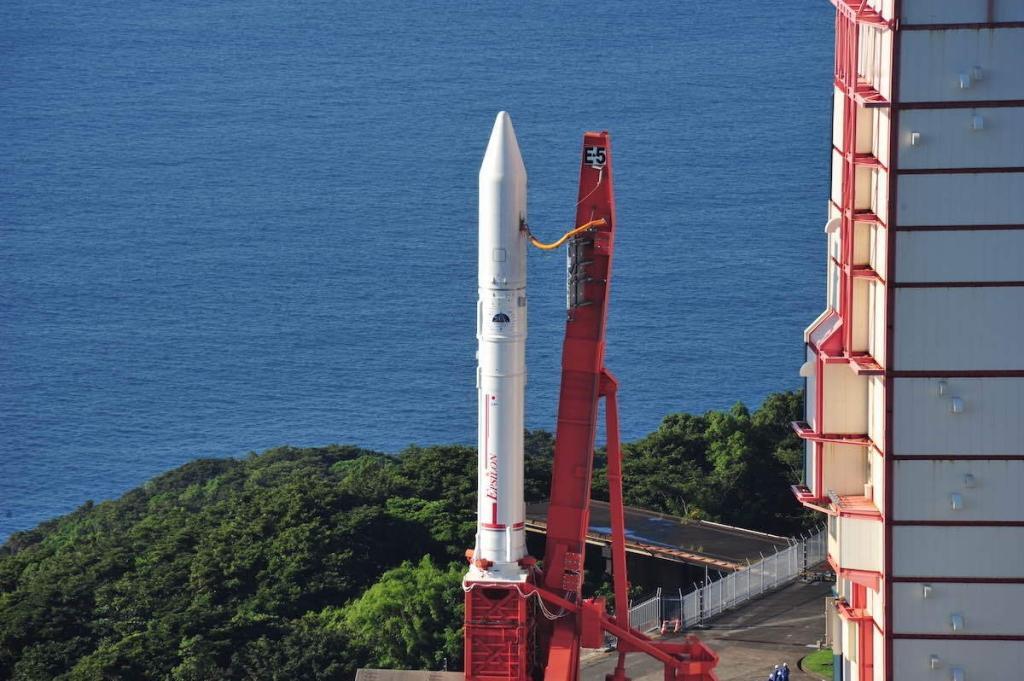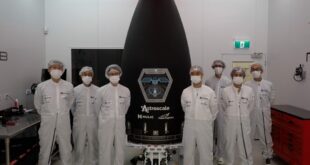
Edinburgh / Tokyo, 13 October 2022. – The Japanese Epsilon-6 launch vehicle carrying satellites failed at launch on Wednesday, with the Japan Aerospace Exploration Agency (JAXA) having to order the rocket to self-destruct a few minutes after liftoff due to it deviating from its intended trajectory. This was the country’s second rocket launch failure following the deliberate destruction of an H2A rocket in November 2003.
The H2A rocket was aborted as two of its boosters failed to separate. Epsilon-6’s self-destruct order was the first such order for the Epsilon series, following five successful launches.
The Epsilon-6 lifted off from Uchinoura Space Center on Kyushu island, carrying eight satellites. The rocket, which was to deploy spacecraft for private and public entities alike, was destroyed merely seven minutes after liftoff. JAXA said that self-destruction was necessary as the vehicle would not have been able to place the satellites into orbit. The rocket fell into the sea after the order. No injuries or property damage was reported.
JAXA is currently investigating the cause of the anomaly and doing its best to “restore trust” in the agency.
The solid-fuel Epsilon-6 rocket is 26 m long, weighing about 87,000 kg, offering shorter development times and briefer launch intervals. In general, Japanese rockets are relatively expensive to launch with one of their major advantages being reliability.





